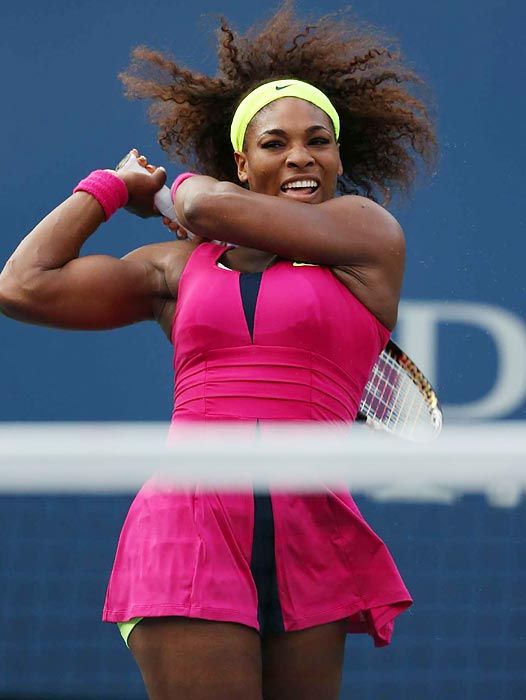
Friday
It was only a quarterfinal match at the Australian Open, but when Serena Williams lost a match in which she was serving at 5-1, 40-30 in the deciding third set, we had a second pillar teetering amongst those that have been supporting the tennis universe.. To borrow from A. E Housman, it felt like “the day was falling/The hour when earth’s foundations fled.”
The poem that came to my mind was Lucille Clifton’s “to my last period.” Hang on as this will take some explaining.
The first pillar, incidentally, is Roger Federer. I refer less to his loss to Greek youngster Stefanos Tsitsipas—even the top tennis players lose to inspired performances from time to time—than it did last September when he fell apart against tennis journeyman John Millman. At the time I compared him to a dying character in Turgenev’s Fathers and Son and predicted he would never win another major.
Similarly, it is not that Serena lost but how she lost. She was dominating against a very good opponent, was called for a foot fault on a match-ending ace, turned her ankle in the subsequent rally, and then never looked herself afterwards. While an injury can make even the greatest woman tennis player of all time seem mortal, something more seemed to be going on. She no longer exhibited the Serena confidence.
To understand the magnitude of the collapse, it’s important to know that Serena’s serve is the deadliest weapon the woman’s game has ever seen. Not only does Serena serve extremely hard (regularly in the 120’s), but she can hit spots and she expertly disguises where she is going with the ball. When other players are asked which shot they would most like to add to their arsenal, they invariably cite Serena’s serve.
Add to this that Serena’s close-out skills are legendary. She is to tennis what Tom Brady is to football.
If her quarterfinal loss does in fact spell the beginning of the end, then this Clifton poem works as a fitting elegy. Famous for her celebration of women’s bodies, including menstruation, Clifton wrote a farewell to her last period before undergoing a hysterectomy. Clifton’s periods were heavy—she never did anything by halves—and in another lyric (“poem in praise of menstruation”) she describes them as wild water as powerful as any river in the universe.
I suspect the Clifton found a kindred soul in Serena, who is similarly forthright, and would have seen her as both “splendid” and trouble-making. For our purposes, the fact that Serena turns 38 this year makes the poem particularly applicable. Also to fit the poem, I’ve chosen a photo of Serena in a red dress:
to my last period
by Lucille Clifton
well girl, goodbye,
after thirty-eight years.
thirty-eight years and you
never arrived
splendid in your red dress
without trouble for me
somewhere, somehow.
now it is done,
and i feel just like
the grandmothers who,
after the hussy has gone,
sit holding her photograph
and sighing, wasn’t she
beautiful? wasn’t she beautiful?
Perhaps Serena isn’t through winning majors yet. I think she has a better chance at another title than Federer. Whatever happens, however, tennis fans are lucky to have seen them both in their primes.